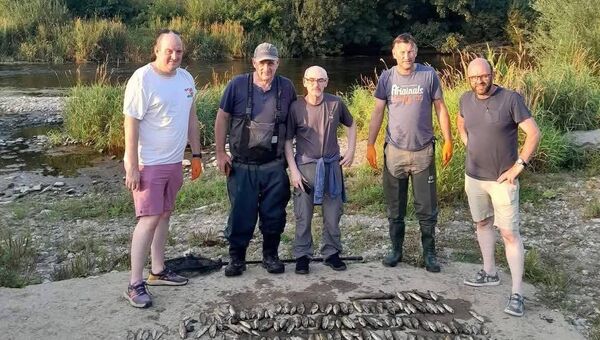Major fish kill causes serious concern for Waterford and Cork anglers

IFI Acting CEO Suzanne Campion
A meeting is due to take place this week in relation to a major fish kill that occurred in the River Blackwater which run through Counties Waterford, Cork and Kerry.
Senior management from Inland Fisheries Ireland are due to meet angler representatives in Co. Cork on Friday, in relation to the fish kill.
IFI Acting CEO Suzanne Campion will be among a delegation due to attend the meeting to discuss the matter with key stakeholders.
Commenting, Ms Campion said: “IFI’s primary function is to protect and manage freshwater fish and their habitats. The large fish kill on the River Blackwater is very distressing for anglers and others who enjoy the river."
"It is also distressing for IFI staff who have devoted many years caring for fish in the catchment," she said.
"We await a report on the event from the Marine Institute to try establish a cause of the fish mortalities," she added.
Ms Campion said the IFI's staff will continue to actively monitor the river to assess the scale of the incident.
While some local angling clubs who use the river estimated the scale of the kill could be in excess of 40,000 fish the IFI's official estimate is that between 8,000 and 10,000 fish have died in the River Blackwater in the last 10 days.
Ms Campion said that estimating the number of mortalities in a fish kill is always difficult as many dead fish will be taken by predators, caught under banks out of sight, sink to the bottom of pools or be washed downstream.
It's also possible that the same fish may be reported by different observers.

Ms Campion said the Marine Institute advice provided to IFI is that there is no precedent for dead fish to be removed from the river and deceased fish should be left where they are found.
The EPA, which has been liaising with IFI’s lead Senior Fisheries Environmental Officer throughout the investigation, inspected water treatment plants and licenced commercial discharges in the affected area and the EPA’s preliminary results did not report anything of concern.
In addition to high temperatures and low flow conditions at the River Blackwater, underlying water quality issues, over a period of time, may be a contributory factor in the fish kill.
The kill relates mainly to brown trout with the affected area of the river stretching to in excess of 18km, according to the IFI.
Commenting on the situation, Sean Long, Director of IFI’s South-Western River Basin District, said: “The Marine Institute, the competent authority for fish health in Ireland, conducted diagnostic sampling of affected fish on site on August 14, at Mallow. IFI expects to receive a related report within 20 days of that date."
"Disease outbreaks can occur in wild fish populations and are influenced by numerous factors, including environmental change," said Mr Long.
However, he added that "no evidence of a polluting or harmful discharge has been detected to date in the river".
Meanwhile, IFI continues to consult with Uisce Éireann, the EPA, Cork County Council and the Marine Institute on the matter and the Marine Institute’s Fish Health Unit has advised the removal of dead fish from the water is not necessary.
IFI officers will continue to monitor the watercourse in the coming days to further assess the incident.
Affected trout were observed in the River Blackwater for around 6km downstream of Mallow and up to 12km upstream of Mallow.
However, they have also been seen at the Awbeg river, and the Clyda river, which joins the Blackwater west of Mallow.
IFI continues to appeal to people to report instances of fish kills to its 24-hour confidential phoneline on 0818 34 74 24.






